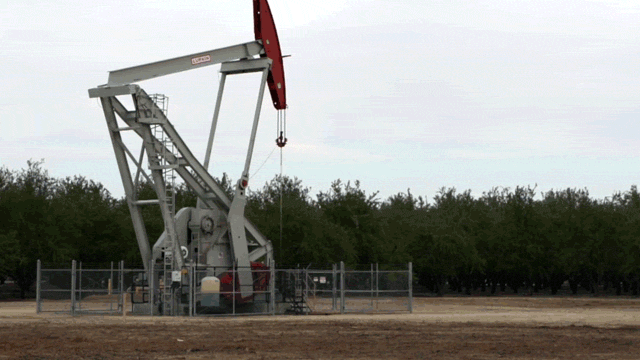Non-Profit Group Moving The Goal Posts On Bakken-Bashing Story

Over a week ago the Center for Investigative Journalism published a story branding North Dakota’s bakken oil fields as a “serial killer.” Since then it has been picked up by various news outlets, but the story seems to be evolving from its original form to skirt issues that have since been debunked.
“In North Dakota’s Bakken oil boom, there will be blood,” was the unfortunate and entirely unfair headline of the original article, but two of the cornerstones of that story were based on bad information.
For one thing, the article claims that oil worker safety has gotten worse in North Dakota during the oil boom years, but in truth the rate of oil worker deaths actually declined during the boom years. The article also claimed that at least one company, Oasis Petroleum, was prioritizing speed over safety with their bonus structure. That also proved to be inaccurate.
So it was interesting to me that when PBS picked up the story for a report these two points, which made up the foundation of the original story, were left out. Instead, the PBS version of the story focused on contractor liability and indemnification.
According to the report, those evil oil companies are skirting responsibility for worker safety by hiring independent contractors. Yet, once again, that’s not an entirely fair characterization of what is happening.
 For one thing, based on data from the Bureau of Labor Statistics (chart on right via Energy In Depth), the oil/mining industry has a much smaller fatality rate than other industries including construction, agriculture, and even the government.
For one thing, based on data from the Bureau of Labor Statistics (chart on right via Energy In Depth), the oil/mining industry has a much smaller fatality rate than other industries including construction, agriculture, and even the government.
My intent here is not to trivialize worker safety, or to shift blame to other industries, but only to point out that singling out the oil industry as a bad actor is a little ridiculous.
In fact, it almost makes it seem like the intent here isn’t so much to expose a real safety issue but to nit-pick the oil industry because of its status as a political piñata loathed by certain factions of political activists.
The PBS report also accuses the industry of using indemnification clauses in contracts because it “allows big energy firms to shield themselves from collateral damage.” But, again, that’s hardly a practice unique to the oil industry.
…singling out oil and gas developers for reaching agreements with their contractors that include liability clauses is highly misleading. As it turns out, “indemnify and hold harmless” clauses are standard for just about all contractors who work on construction projects, and they are even enshrined in the American Institute of Architects guidebook on drawing up construction contracts. According to the American Bar Association, the AIA’s recommendation is routinely followed…
Likewise, state and federal governments use similar clauses in everything from contests to highway projects to motor vehicle leases. Remarkably, CIR highlights cases in which surviving family members received payments and settlements from a combination of insurance companies, contractors and oil and gas developers. Those settlements were reached after investigations by OSHA that determined what went wrong and who was responsible. In other words, for incidents that occurred during the course of oil and gas development, there was accountability within the oil and gas industry.
To be fair, this doesn’t necessarily mean that the use of independent contractors and liability clauses is kosher. But this is context missing from the PBS/CIR story.
They make it sound as though the oil industry is doing some nefarious thing with independent contractors and indemnification, but in reality it’s quite common in many industries including construction and the government.
If you’re going to criticize the practice, why single out the oil industry which is hardly the lone or even the most common user of these practices?
Unless, that is, your intent is to vilify the industry, casting them in bad light by giving the public only part of the story.




